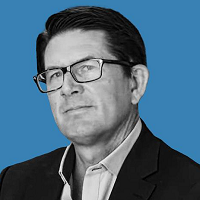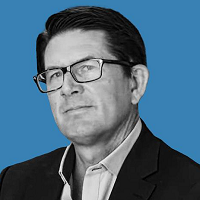Four 401(k) Mistakes to Avoid While Saving for Retirement
Now’s a good time to reflect on how to optimize your 401(k) savings and ensure you’re not making any of these common mistakes.


Profit and prosper with the best of Kiplinger's advice on investing, taxes, retirement, personal finance and much more. Delivered daily. Enter your email in the box and click Sign Me Up.
You are now subscribed
Your newsletter sign-up was successful
Want to add more newsletters?

Delivered daily
Kiplinger Today
Profit and prosper with the best of Kiplinger's advice on investing, taxes, retirement, personal finance and much more delivered daily. Smart money moves start here.

Sent five days a week
Kiplinger A Step Ahead
Get practical help to make better financial decisions in your everyday life, from spending to savings on top deals.

Delivered daily
Kiplinger Closing Bell
Get today's biggest financial and investing headlines delivered to your inbox every day the U.S. stock market is open.

Sent twice a week
Kiplinger Adviser Intel
Financial pros across the country share best practices and fresh tactics to preserve and grow your wealth.

Delivered weekly
Kiplinger Tax Tips
Trim your federal and state tax bills with practical tax-planning and tax-cutting strategies.

Sent twice a week
Kiplinger Retirement Tips
Your twice-a-week guide to planning and enjoying a financially secure and richly rewarding retirement

Sent bimonthly.
Kiplinger Adviser Angle
Insights for advisers, wealth managers and other financial professionals.

Sent twice a week
Kiplinger Investing Weekly
Your twice-a-week roundup of promising stocks, funds, companies and industries you should consider, ones you should avoid, and why.

Sent weekly for six weeks
Kiplinger Invest for Retirement
Your step-by-step six-part series on how to invest for retirement, from devising a successful strategy to exactly which investments to choose.
401(k) account balances have risen for retirement savers of every generation for the third straight quarter. This good news for hardworking Americans was revealed in Fidelity Investments’ Q2 2023 Retirement Analysis. Fidelity found that the overall average 401(k) account balance in the second quarter of this year increased to $112,400, up 8% from five years ago and 39% from 10 years ago.
Members of Generation Z experienced the largest year-over-year increase (66%) in 401(k) account balances during the quarter, followed by Millennials with 24.5%, Gen Xers with 14.5% and Baby Boomers with 6.3%.
For this positive trend to continue, 401(k) plan participants need to take the time to understand how to take full advantage of their plans and, ultimately, optimize their savings.
From just $107.88 $24.99 for Kiplinger Personal Finance
Become a smarter, better informed investor. Subscribe from just $107.88 $24.99, plus get up to 4 Special Issues

Sign up for Kiplinger’s Free Newsletters
Profit and prosper with the best of expert advice on investing, taxes, retirement, personal finance and more - straight to your e-mail.
Profit and prosper with the best of expert advice - straight to your e-mail.
Today (Sept. 8) is National 401(k) Day. This annual tribute gives American workers the opportunity to pause and reflect on how they can utilize their 401(k) savings accounts to achieve a financially secure and comfortable retirement. Below is a list of common mistakes that they should avoid while saving for retirement.
1. Don’t rely on your 401(k) for emergency expenses.
In order to fully maximize your 401(k) contributions, keep a “rainy day fund” with savings you can access in the event of an emergency. Ideally, you should begin setting aside money outside of your 401(k) for meeting emergency expenses before you enroll, or are automatically enrolled, in your 401(k) plan. This way, you won’t have to make premature withdrawals from your 401(k) account, which can reduce your retirement savings and income.
2. Don’t prematurely withdraw your savings — keep them incubated in your 401(k) for as long as possible.
When you withdraw savings from your 401(k) account before age 59½, you are subject to taxes and could face penalties on what you remove. Even more important, you also lose the compound interest that the withdrawn savings would have accrued had the sum stayed invested in your 401(k). In the same vein, if you switch jobs and have trouble rolling over your 401(k) savings from your old account into your previous employer’s plan, you’re better off keeping your savings invested there instead of cashing out the balance.
3. Start saving early, but don’t try to time the market.
The biggest advantage that retirement savers have is Father Time. The longer you save in a 401(k) account, the longer your hard-earned savings have to grow. At the same time, some participants can fall into the trap of being too aggressive with their retirement savings in an effort to time the market. Most participants aren’t market experts — and even the so-called experts can be wrong about the right time to buy or sell assets.
Instead, a more prudent approach would be to give your savings the time they need to grow in your 401(k) account as part of a thoroughly mapped out financial plan. This is a much safer bet for ensuring you have enough money when you are old enough to retire. Any questions you have about market timing and conditions should be discussed with a certified financial professional who is trusted by your family and friends — never make major 401(k) buying and selling decisions on your own.
Working with a professional who understands your goals and risk tolerances, and has collaborated with you on a well-laid-out financial plan, is the best way to attempt to protect your 401(k) and other retirement savings against market downturns.
4. Don’t miss out on your employer’s full match.
The SECURE 2.0 Act of 2022 only expands automatic enrollment for 401(k) plan sponsors. If you are automatically enrolled in your plan, you might as well take full advantage of what it offers. For example, make sure you find out the maximum employer match you can receive and how much you need to save in your 401(k) to become eligible.
Also, if you are automatically enrolled in your 401(k) plan, check to see that the employer match at which you have been enrolled isn’t less than what you’re entitled to receive. Even if it’s a difference of $10 a week in contributions, it can make a big difference when you’re old enough to retire.
Also, if you are automatically enrolled, check that the target date fund in your 401(k) account is the right fit for the income you need to save to meet your retirement goals. Furthermore, if your employer’s 401(k) plan offers access to guaranteed income solutions such as annuities, the full purchasing power of the plan itself will bring down the institutional fees you would otherwise be subject to if you invested in them outside of your plan.
401(k) plans have pretty much replaced pensions as the private sector vehicles for providing workers with income during retirement. Plan participants should take the time to understand how they can maximize their retirement savings through their 401(k) savings accounts, and be aware of common mistakes that could reduce their income in retirement.
related content
- To Auto-Increase or Not to Auto-Increase Your 401(k) Contribution Rate
- Thinking about Rolling Your 401(k) into an IRA? 7 Deciding Factors to Consider
- Ways to Avoid the Penalty on Early Retirement Withdrawals
- Why So Many Experts Consider Annuities a Win for Retirees
Profit and prosper with the best of Kiplinger's advice on investing, taxes, retirement, personal finance and much more. Delivered daily. Enter your email in the box and click Sign Me Up.

As the Head of Retirement for Envestnet, Sean plays a key role in the ongoing growth and alignment for Envestnet’s solutions for the workplace. Sean has over 25 years of experience in the financial services industry serving in a multitude of executive roles for some of the top firms in the asset management space. Prior to joining Envestnet, Sean was a Managing Director with BlackRock and led their Retail Defined Contribution Investment group while also serving on a variety of executive committees across the firm.
-
 Nasdaq Leads a Rocky Risk-On Rally: Stock Market Today
Nasdaq Leads a Rocky Risk-On Rally: Stock Market TodayAnother worrying bout of late-session weakness couldn't take down the main equity indexes on Wednesday.
-
 Quiz: Do You Know How to Avoid the "Medigap Trap?"
Quiz: Do You Know How to Avoid the "Medigap Trap?"Quiz Test your basic knowledge of the "Medigap Trap" in our quick quiz.
-
 5 Top Tax-Efficient Mutual Funds for Smarter Investing
5 Top Tax-Efficient Mutual Funds for Smarter InvestingMutual funds are many things, but "tax-friendly" usually isn't one of them. These are the exceptions.
-
 Social Security Break-Even Math Is Helpful, But Don't Let It Dictate When You'll File
Social Security Break-Even Math Is Helpful, But Don't Let It Dictate When You'll FileYour Social Security break-even age tells you how long you'd need to live for delaying to pay off, but shouldn't be the sole basis for deciding when to claim.
-
 I'm an Opportunity Zone Pro: This Is How to Deliver Roth-Like Tax-Free Growth (Without Contribution Limits)
I'm an Opportunity Zone Pro: This Is How to Deliver Roth-Like Tax-Free Growth (Without Contribution Limits)Investors who combine Roth IRAs, the gold standard of tax-free savings, with qualified opportunity funds could enjoy decades of tax-free growth.
-
 One of the Most Powerful Wealth-Building Moves a Woman Can Make: A Midcareer Pivot
One of the Most Powerful Wealth-Building Moves a Woman Can Make: A Midcareer PivotIf it feels like you can't sustain what you're doing for the next 20 years, it's time for an honest look at what's draining you and what energizes you.
-
 I'm a Wealth Adviser Obsessed With Mahjong: Here Are 8 Ways It Can Teach Us How to Manage Our Money
I'm a Wealth Adviser Obsessed With Mahjong: Here Are 8 Ways It Can Teach Us How to Manage Our MoneyThis increasingly popular Chinese game can teach us not only how to help manage our money but also how important it is to connect with other people.
-
 Looking for a Financial Book That Won't Put Your Young Adult to Sleep? This One Makes 'Cents'
Looking for a Financial Book That Won't Put Your Young Adult to Sleep? This One Makes 'Cents'"Wealth Your Way" by Cosmo DeStefano offers a highly accessible guide for young adults and their parents on building wealth through simple, consistent habits.
-
 Global Uncertainty Has Investors Running Scared: This Is How Advisers Can Reassure Them
Global Uncertainty Has Investors Running Scared: This Is How Advisers Can Reassure ThemHow can advisers reassure clients nervous about their plans in an increasingly complex and rapidly changing world? This conversational framework provides the key.
-
 I'm a Real Estate Investing Pro: This Is How to Use 1031 Exchanges to Scale Up Your Real Estate Empire
I'm a Real Estate Investing Pro: This Is How to Use 1031 Exchanges to Scale Up Your Real Estate EmpireSmall rental properties can be excellent investments, but you can use 1031 exchanges to transition to commercial real estate for bigger wealth-building.
-
 Should You Jump on the Roth Conversion Bandwagon? A Financial Adviser Weighs In
Should You Jump on the Roth Conversion Bandwagon? A Financial Adviser Weighs InRoth conversions are all the rage, but what works well for one household can cause financial strain for another. This is what you should consider before moving ahead.